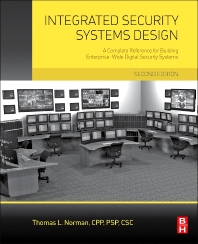9 Ways to Make Money With smartHOME Technologies
Discover new ways to increase income and gain a competitive edge with these exciting offerings.

ABOVE: Residential video gives integrators the opportunity to increase revenues on multiple fronts, from the initial sale and installation to future system upgrades and additional monitoring options.

By offering a range of smart home options, from conventional features to new, specialized products, integrators can become a valued technology resource and one-stop solution provider.

Demand for residential video solutions is rising as more homeowners are looking to add cameras for both self-monitoring and surveillance.

Thermostat control and remote services are popular with owners for the convenience and cost savings, making them an easy sell for integrators.

The flexibility and increasing affordability of wireless IP cameras are making residential video more appealing to a growing number of homeowners. This weather- and vandal-resistant Speco CILT00T6B wide-angle camera provided an inexpensive option for this residential installation.

Integrators who offer specialized products, such as water controllers, can open new revenue channels and introduce new customers to existing security and home automation products and services. The Hydrocom water controller includes a control panel, keypad, transmitter, remote sensor probe, flow sensor and valve.






With new competitors entering the home automation market, residential systems integrators need to work harder to attract and keep customers. Providing homeowners with new options can increase customer satisfaction while bolstering sales and recurring revenues.
SDM spoke with several successful residential integrators to discover their top ideas, for mainstream or niche markets, to make money with smart home technologies.
Mobile Apps & Remote Services
With the rapid proliferation of smartphones and tablets, homeowners want — and expect — to be able to do just about anything with a tap of the screen; staying connected with their homes is no exception.
“Everybody that has it, loves it,” says Nick Tamburri, president, Aggressive Home Automation and Design, located in Newark, N.J.
Remote services can be great source of additional recurring monthly revenues (RMRs) because customers enjoy using them. “That is one of the easiest things to upsell a customer from basic security to automation systems,” says Michael Tangora, president of Delmar, N.Y.-based Tangora Technologies.
Beyond their customer appeal, remote services are an invaluable tool for integrators as well. They can increase sales and RMR by showing homeowners the full range of options available with their home automation system. The capability to remotely access a system allows technicians to troubleshoot or upgrade a system without an on-site service call, saving time and money for everyone. “For me, it’s a tool. For them, it’s a tool. For both of us, it’s a convenience,” he says. “It gives me that bright gold star as a service provider,” Tangora describes.
Lighting
Energy-efficient lighting, including LEDs and compact fluorescent light bulbs (CFLs), is growing in demand. Low cost, energy savings, and low maintenance appeal to customers. Those savings can motivate them to invest more upfront.
“LED lighting is the way of the future,” says Jim Sweeney, principal at Hometronics Lifestyles based in Durham, Conn. Regulations mandating increased energy efficiency in new construction are driving demand, as well. “The changes in codes are moving people into more energy-efficient lighting products,” he says.
Lighting can be a lucrative opportunity for dealers. Sweeney says that dealers can make 30 percent to 50 percent gross profit per light sold, depending on the type of light. He estimates that the average security dealer could probably increase overall sales revenue by 25 percent to 40 percent.
Sweeney, who has taught lighting boot camps for CEDIA, says that adding lighting is an easy transition for security dealers. “Lighting is probably the easiest thing to do. Most security dealers are used to counting. Instead of counting windows and doors, you count the number of lights. We’re used to compiling that kind of knowledge,” Sweeney describes.
Chris Tyler, president of Aurora Technology, a CEDIA member, based in Omaha, Neb., agrees that lighting is a good fit for integrators. “It gives us a leg up against the competition. It’s another revenue stream,” Tyler says. “We do a lot of lighting control, now we are doing the fixtures,” he adds. Lighting design provides another opportunity, as there are not many lighting designers available in some areas, he believes. “We were doing design for control switches, so it was a natural progression to do this.”
Automated Shades
Keith Harrison, owner of Total Home Technologies, a dealer based in Roseland, N.J., has found shade control to be a profitable addition to his offerings, in part because people think about shades a little differently than they do other options. “They’re not an option. People don’t look at window shading as a luxury; they look at it as a necessity. You’re tapping into a different budget,” Harrison explains.
Dealers who offer shades need to expand their knowledge base and develop an understanding of home décor, color and fabrics. While developing those skills may not be easy at first, the effort has its rewards. Harrison says that his company has experienced nearly 20 percent growth in annual revenues since adding shade control. He says that integrators can get a premium on shades, noting that customers are willing to pay 10 percent, even up to 20 percent, more on an equal or better product for the convenience of working with a single contractor.
Thermostat Control
Because heating and cooling accounts for the largest portion of home energy consumption, energy management options, especially thermostat control, are an easy sell to most homeowners. “It’s so top of mind for anybody who pays the electric bill,” Tangora thinks. He says energy management has been a growth area for his company. Tangora estimates that energy management can add 10 percent to gross sales and says it is huge way to differentiate his company from the competition.
Thermostat control is not only a nice add-on, but it can actually drive security sales, especially in new construction, says Mark Recene, chief innovation officer for HS Technology Group, an AiN Group dealer located in Baltimore. “The acceptance rate with alarm systems has doubled,” he describes. “Thermostats connected with security have added a whole level of value. They wouldn’t be security customers without it.”
Cameras
With mobile services making it easier for homeowners to stay connected to their homes, interest in cameras for residential use, for both security and self-monitoring, is growing. “The demand for residential video has increased tenfold over the past few years,” states Jill Lloyd, president of Lloyd Security, Minneapolis.
Video can provide opportunities in equipment sales, labor, service, and monitoring. “Every single residential camera job has an associated monthly fee,” Recene relates. Adding cameras to a security system also opens the door to more options, such as motion sensors and video identification.
Water Sensors & Valve Control
Property protection includes more than theft deterrence. Some manufacturers now offer water sensors and shutoff valves that can be integrated with the home security and automation systems to prevent or minimize water damage. Product offerings vary. Most include water-detection sensors that trigger shut-off valves. Systems that are more sophisticated include temperature sensors, not only to stop flooding, but also to anticipate and avoid it. Flow sensors can be used for flood and leak detection, as well as managing water consumption. “It’s very easy to present to the homeowner because of the discount in home insurance,” says Lloyd, who sells water controllers (For more information go to www.hydrocom.us.com).
Water control products have the added benefit of driving customers to dealers. Insurance companies often require homeowners to install shut-off valves after they have filed a damage claim and refer their policyholders to her, says Lloyd. Not only do these referrals result in sales of water controllers, but they also create an opportunity to introduce homeowners to other aspects of home automation and security. Dealers can become a one-stop shop. “You have a high likelihood of getting all the RMR,” she believes.
Pool Pump Controls
Steven DiProsperi, owner of Automation Solutions, a dealer in Scottsdale, Ariz., uses automation to help consumers save money by running energy-hungry pool pumps at off-peak hours. Homeowners can control their pool pumps through their home automation systems. Especially useful for vacation homes, integrating pool pumps with the system allows homeowners to control them much like integrated thermostat control with temperature setbacks for when the homeowners are away and remote access to lower the pool temperature before they come into town.
Pools provide additional opportunities for add-ons including motion sensors or sensors in door locks that trigger an alarm when someone, possibly a child, enters the pool area.
Solar
For integrators who work in regions where energy costs are high and state and local regulations are favorable, solar can be a profitable option. “It has less to do with whether it is sunny every day, but more to do with state and local incentives for it,” says John Bringenberg, president and CEO of HomeTalk and SunTalk Solar in Denver.
He suggests collaborating with or hiring an electrician and solar designer, as installation of solar energy systems is very different from other integration. However, the additional investment required to bring solar into your portfolio of offerings may be well worth it. “If 10 to 20 percent of current customers become solar customers, then that may well be enough of a coattail to carry the business,” Bringenberg says.
Service Contracts
A growing number of dealers are adding service contracts as way to augment monthly revenues and stay in touch with their clients. Most dealers offer multiple levels of service for their clients to choose from, ranging in price and extent of service provided.
Before implementing service plans at Total Home Technologies, Harrison spent a lot of time answering emails and addressing small tasks remotely. “It’s inefficient and problematic to negotiate how much time a technician spends on a home remotely. It can get into a negative conversation,” says Harrison. By offering defined service contracts, customers know exactly what they can expect and the company is compensated for the service it provides.
Tracking customers through the service desk, which requires a login and password, also enables the company to maintain regular contact with customers and offer them new products, services, and upgrades as they become available. “For a small company, it makes it a lot more efficient for us,” Harrison says.
While each of these options can increase revenues individually, collectively they can yield even larger returns. Offering homeowners a variety of options not only improves the bottom line in the short term, but can be good for business in the long run, as well. Recene explains the more things you tie into the alarm system, the less likely customers are to cancel their security accounts. “You’re almost adding an insurance policy for the security system by adding more features,” he believes.
Integrators who offer a range of products and services can distinguish themselves from competitors by becoming the technology expert in the home that can meet all of the clients’ needs. Ultimately, whatever the offering, it comes down to good customer service, DiProsperi says. Becoming the expert that homeowners trust for their automation is the real payoff, he says, noting that he has long-term clients who are willing to pay extra for him to travel across country to work on their homes: “They trust you. How much is that worth?”
3 Strategies for Success
Prewire for Future Expansion: “One of the key things that most people overlook is extensive prewiring of the home,” says Gary Hoefler, owner of Home Technology Plus, a CEDIA member located in Eads, Tenn. Homeowners often do not understand everything home automation entails. After living with a system for a while, they learn what they like and often want more. “That’s why infrastructure is so important. When people don’t understand what they are buying, we can make more money by preparing them for [upgrades] down the road,” Hoefler maintains.
Keep up With the Technology: New technology means new revenue opportunities. “You have to stay as close to the edge as possible,” says Mourad Gazale, owner of Domoticka, Ottawa, Canada. With the rapidly changing technology in home automation and control, dealers have to stay on top of new developments to be able to offer their clients the best options and maintain a competitive edge. “If you’re not doing that, beware, because someone else is,” Gazale thinks. “If you have 500 or 600 clients under monitoring and you’re not going back to them on these new, cool solutions, I will.”
Let Homeowners Try It: Getting homeowners to experience a new product can open the door to more sales. This technique works especially well with lighting, where integrators can add a few dimmers in key areas. Once customers experience how lighting can enhance the security and ambience of the home, they want more. “Nobody is ever satisfied, “Recene describes. “They just can’t get enough of it. It really does sell itself.”
Aggressive Home Automation and Design has found similar success by installing camera systems for a 30-day trial period. “It’s a give-and-take situation. You have to give to get,” says Tamburri.
Looking for a reprint of this article?
From high-res PDFs to custom plaques, order your copy today!














